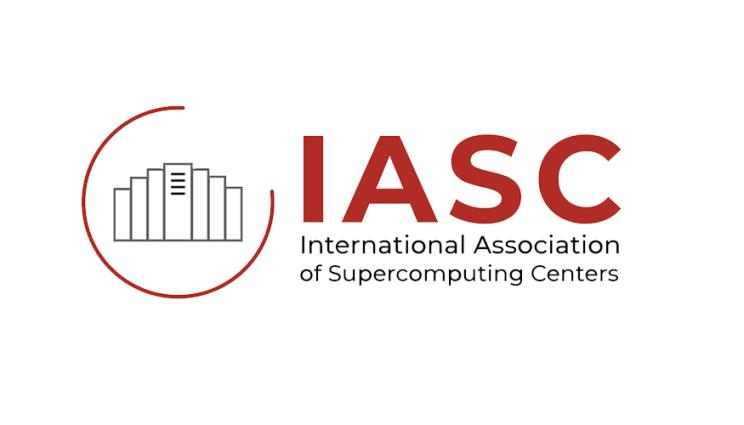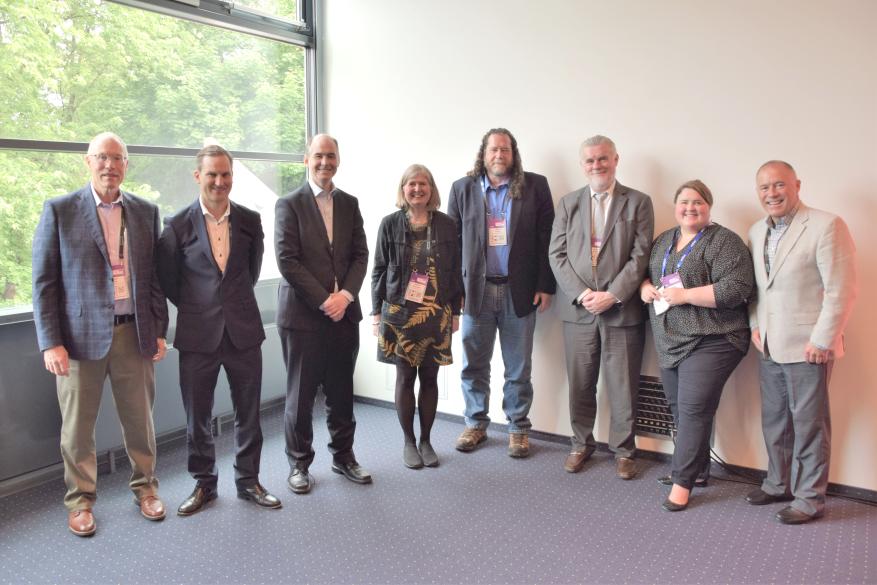
Lawrence Livermore National Laboratory signed a memorandum of understanding with high performance computing facilities in Germany, the United Kingdom and the United States, jointly forming the new International Association of Supercomputing Centers.
Lawrence Livermore National Laboratory (LLNL) has signed a memorandum of understanding with high performance computing (HPC) facilities in Germany, the United Kingdom and the United States, jointly forming the International Association of Supercomputing Centers (IASC).
LLNL and co-founders - the Science and Technology Facilities Council (STFC) Hartree Centre, the National Center for Supercomputing Applications (NCSA) and Leibniz Supercomputing Centre of the Bavarian Academy of Sciences and Humanities (LRZ) - envision the IASC as a conduit for determining computing center management best practices, studying solutions for major common challenges and fostering communication and collaboration among the centers, partners and users.
With a long history of leadership in HPC, LLNL stands to benefit from its IASC membership by strengthening its legacy and supporting its national security mission, according to former High Performance Computing Innovation Center Director Wayne Miller, who was instrumental in the founding of the IASC.
"We have had an enthusiastic response to the creation of the IASC from major compute centers across the globe, including LLNL, and also from more topical centers serving smaller user communities," Miller said. "We also are talking to regional center associations that represent many constituent centers; all are facing the same problems and are welcoming this opportunity to have a broader, problem-focused collaboration. The common refrain we're hearing is: 'I'm surprised this doesn't exist already.'"
By joining IASC, the Hartree Centre - as part of its goals of adding scalability and functionality for research and development and improving user accessibility to include organizations without HPC resources - seeks to learn and share good practices for operating HPC centers.
"Public-facing supercomputing centers have a unique set of problems that are complex or complicated in nature," said Michael Gleaves, deputy director of the Hartree Centre. "I think there are plenty of initial areas that we are all struggling with today that we can use to generate collaboration. We've announced the IASC to engage the global supercomputer center community and talk about why, what and how it can be of value."
One of the original supercomputing centers in the U.S., the NCSA - sited at the University of Illinois at Urbana-Champaign - hopes the IASC will offer computing centers the opportunity to collaborate and share similar expertise in research, computing, application development, thought leadership and innovation, while working together to solve grand challenges.
"IASC represents the opportunity to address common challenges in supercomputing centers around the world - talent, resources, diversity, unique compute architecture," said Brendan McGinty, director of industry at NCSA. "Industry has long provided some of the largest datasets from which supercomputers have solved the grandest of challenges. The evolution from petascale to exascale in a decade, combined with the confluence of AI on traditional HPC domain solutions, has accelerated the time to and depth of solution. Industry has now fully caught up to advanced computing and that marriage has never been more important. It will take collaborations between centers with like talent and resources to address all the opportunities to help us all to evolve."
The LRZ - a computing user facility founded in 1962 that serves Munich's top universities and colleges as well as research institutions in Bavaria, Germany and Europe - intends to utilize the IASC to address key operational and technical issues, including operating and streamlining center infrastructure, user engagement and experience optimization, workforce development and best practice exchange.
"With the IASC, we can achieve more together and learn from each other. We have common topics such as integrating quantum computing into our traditional systems, attracting and training a modern workforce and working toward climate-neutral operations," said Laura Schulz, department head of quantum computing at LRZ. "So far, supercomputing centers have largely solved these issues for themselves, but we can optimize it by partnering in the IASC. Our next goal is to go on a virtual global 'listening tour' to talk to centers around the world about their common challenges."
The participants plan to report on the results of their virtual tour at an appropriate conference in the next year. As they look to add more members, IASC participants will meet monthly and examine options for organizing the association. They also will evaluate the most useful modalities for continually addressing key challenges from member institutions and options for expanding membership.
Visit the website to learn more about IASC.







